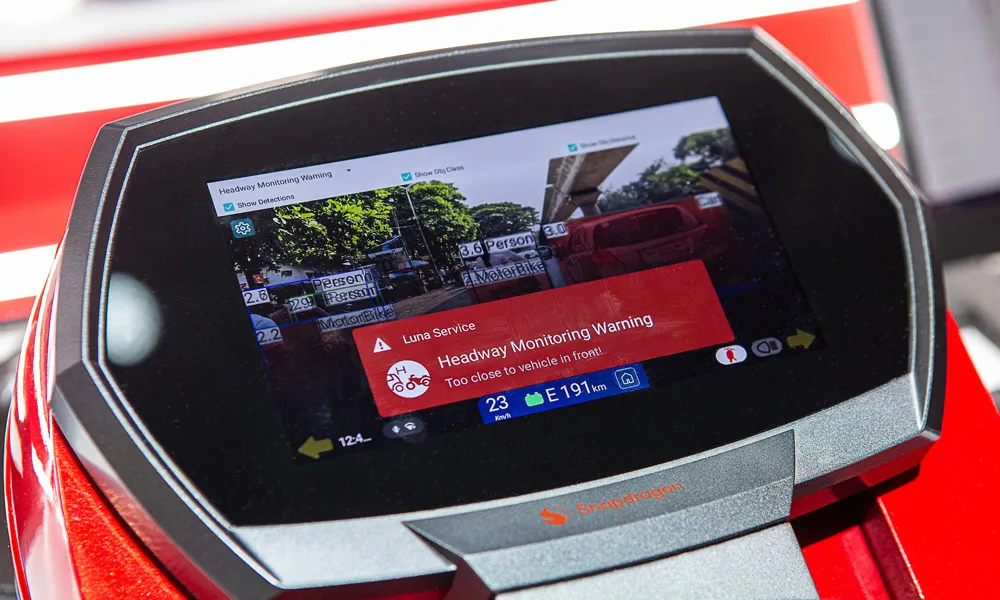Pressure is growing in the US over concerns that GPS accuracy could be affected. A coalition has formed that comprises an array of the leading construction equipment manufacturers, GPS technology providers and other concerned bodies including those from the agricultural and airline industries. The coalition claims that up to 3.3 million US jobs could be affected by the threat to GPS accuracy, with an economic impact of some US$96 billion in annual direct economic benefits to the US economy.
April 17, 2012
Read time: 3 mins
Pressure is growing in the US over concerns that GPS accuracy could be affected.
A coalition has formed that comprises an array of the leading construction equipment manufacturers, GPS technology providers and other concerned bodies including those from the agricultural and airline industries.
The coalition claims that up to 3.3 million US jobs could be affected by the threat to GPS accuracy, with an economic impact of some US$96 billion in annual direct economic benefits to the US economy. The threat is said to come from plans by a firm called2628 LightSquared to install wireless broadband across the US. The firm has plans for some 40,000 base stations across the US and the concern is that the frequency used will be close to that of the GPS signals, causing interference and negatively affecting accuracy.
A study by Dr Nam D Pham of the Washington, DC-based NDP Consulting Group warns of, “…serious economic repercussions for the US economy” if LightSquared’s plans proceed. The study says that the $96 billion figure represents the equivalent of 0.7% of the US economy. This $96 billion comprises up to $87.2 billion in costs to commercial GPS users and up to $8.8 billion in costs to commercial GPS manufacturers. The commercial benefits of GPS are largely enabled by high precision GPS technologies. The study states that the commercial adoption of GPS continues to grow at a high rate and is expected to annually create $122.4 billion in benefits and grow to directly affect more than 5.8 million jobs in the downstream commercial GPS-intensive industries. The study makes clear that its analysis is confined to the economic benefits of GPS technology to commercial GPS users and GPS manufacturers, mainly high precision GPS users, and the economic costs of GPS signal degradation to only those sectors. The report therefore does not capture the considerable benefits and costs to consumer users of GPS, other non-commercial users and military users. The analysis shows that GPS equipment revenues in North America in the 2005-2010 time period averaged $33.5 billion per year and that commercial sales accounted for 25% of the total, while the consumer and military markets respectively made up 59% and 16% of the total. The report notes that the US Government has already invested $35 billion in taxpayer money in the GPS satellite constellation and continues to invest in GPS at a rate of about $1 billion/year.
A coalition has formed that comprises an array of the leading construction equipment manufacturers, GPS technology providers and other concerned bodies including those from the agricultural and airline industries.
The coalition claims that up to 3.3 million US jobs could be affected by the threat to GPS accuracy, with an economic impact of some US$96 billion in annual direct economic benefits to the US economy. The threat is said to come from plans by a firm called
A study by Dr Nam D Pham of the Washington, DC-based NDP Consulting Group warns of, “…serious economic repercussions for the US economy” if LightSquared’s plans proceed. The study says that the $96 billion figure represents the equivalent of 0.7% of the US economy. This $96 billion comprises up to $87.2 billion in costs to commercial GPS users and up to $8.8 billion in costs to commercial GPS manufacturers. The commercial benefits of GPS are largely enabled by high precision GPS technologies. The study states that the commercial adoption of GPS continues to grow at a high rate and is expected to annually create $122.4 billion in benefits and grow to directly affect more than 5.8 million jobs in the downstream commercial GPS-intensive industries. The study makes clear that its analysis is confined to the economic benefits of GPS technology to commercial GPS users and GPS manufacturers, mainly high precision GPS users, and the economic costs of GPS signal degradation to only those sectors. The report therefore does not capture the considerable benefits and costs to consumer users of GPS, other non-commercial users and military users. The analysis shows that GPS equipment revenues in North America in the 2005-2010 time period averaged $33.5 billion per year and that commercial sales accounted for 25% of the total, while the consumer and military markets respectively made up 59% and 16% of the total. The report notes that the US Government has already invested $35 billion in taxpayer money in the GPS satellite constellation and continues to invest in GPS at a rate of about $1 billion/year.








